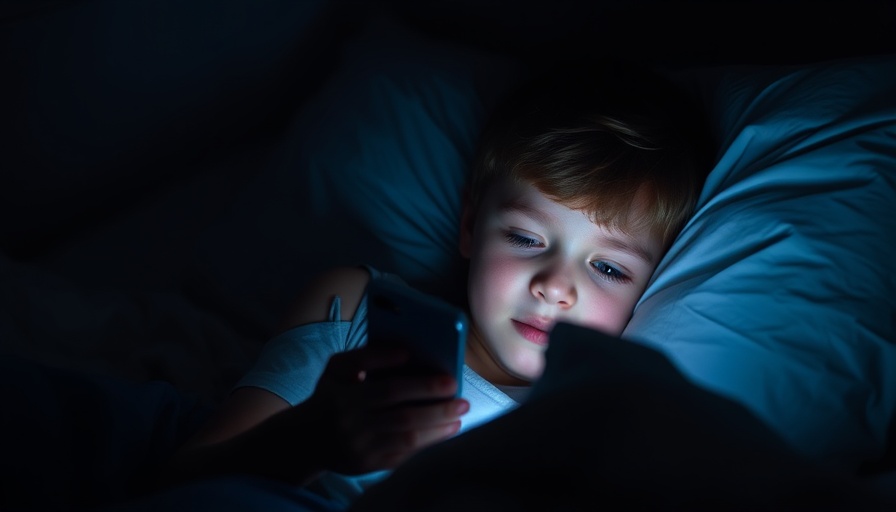
The Impact of Screen Time on Your Sleep Quality
In today’s digital age, many individuals find themselves scrolling through social media or watching their favorite shows right before hitting the hay. It’s a ritual that has become ingrained in our nighttime habits, often viewed as a form of unwinding. Yet, recent research suggests that this practice may do more harm than good when it comes to getting a good night’s sleep.
Understanding the Effects of Screens Before Bed
A study published in Frontiers in Psychiatry examined the habits of over 45,000 students aged 18 to 28, highlighting the growing concern about sleep disturbances linked to screen use. The findings revealed that just one hour of screen time can boost the risk of insomnia by 59% and shorten sleep duration by 24 minutes. This startling information sheds light on how effortless bedtime scrolling can significantly disrupt our sleep cycles.
Why the Type of Screen Activity Doesn’t Matter
Interestingly, the type of screen activity—whether it’s scrolling through social media, playing games, or watching videos—doesn’t appear to matter. Dr. Gunnhild Johnsen Hjetland, the study's lead author, emphasized that the duration of screen exposure before bed is the real culprit. It seems that the very act of using screens might exclusively play a role in sleep disruption due to several factors.
Four Key Ways Screens Disrupt Sleep
The researchers outlined four primary ways screen usage can negatively impact our sleep:
- Notifications Interrupting Rest: Frequent alerts can cause anxiety and interrupt your flow of sleep, making it hard to rest.
- Screen Time Replaces Sleep Time: Engaging with devices takes the place of the time you otherwise would have used for sleeping.
- Increased Alertness: Engaging with stimulating content can raise alertness levels, deterring your ability to unwind.
- Disruption of Circadian Rhythms: The blue light emitted from screens interferes with melatonin production, essential for regulating sleep-wake cycles.
Establishing Healthy Sleep Habits
For those struggling with sleepless nights, the study represents a pivotal reminder of the importance of healthy sleeping habits. While the exact causation between insomnia and screen use remains somewhat murky—whether excessive screen time leads to insomnia or sleep difficulties push individuals towards screens—it’s prudent to favor healthier choices.
Suggestions for Better Sleep Hygiene
If you often find yourself entangled in late-night screen sessions, consider introducing the following strategies:
- Establish a Cut-off Time: Aim to stop using screens at least 30 to 60 minutes before bedtime to allow your mind to wind down.
- Disable Notifications: Limiting disruptions can create a more peaceful environment conducive to sleep.
- Create a Relaxing Night Routine: Instead of screens, explore activities that promote relaxation, such as reading, meditating, or practicing yoga.
Connection to Overall Wellness
Good sleep is integral to maintaining overall health, enhancing mental clarity, emotional stability, and even physical wellness. Studies show that quality sleep supports weight loss, stress management, and even improved workout results. Fostering good sleeping habits, particularly by managing screen exposure, contributes positively to your health and well-being.
Final Thoughts
Taking screens to bed may seem harmless, but its real impact is far-reaching. With mounting evidence suggesting its adverse effects on sleep, it’s high time to reconsider our bedtime routines. Prioritizing sleep hygiene could unlock improvements in our daily lives, from energy levels to general health.
Start small by setting boundaries with your screen time before bed and replace it with relaxing activities. Your body will thank you for it!
 Add Row
Add Row  Add
Add 




Write A Comment